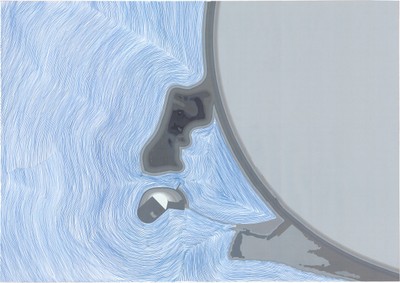If we consider highly urbanised regions, like Flanders, as atypical metropolitan constellations than the quality of this diluted urban environment, characterised by a multitude of ‘holes’, is to a large extend determined by its open space structure. Apart from the consolidated and the conventional open spaces the Flemish open space structure consists of alternative open spaces, collateral spaces of more dominant forms of urbanisation. These collateral spaces are often the result of a mismatch between the logic of regional planning and the local spatial qualities. As a result nature is isolated and external cultural elements are introduced, leaving a space with a hybrid character, hybrid because of the cutup dialogue between nature and culture. As these spaces have a vague status and an uncontrolled character they often become free havens of public life. I explore by design these hybrids as a new type of open space. I use the projects to reflect on design perspectives and attitudes when dealing with these alternative spaces. In general it shows a design process in which the intrinsic characteristics of the site are considered the regulatory idea of the design, a design process of reediting weak residues. Furthermore I look at ways to design openness and margins as to afford and incite spontaneous use and appropriation. The reflection is focused on ways to spatially strengthen this uncontrolled public character of hybrids thus working on the quality of life in the Flemish urban constellation by widening the range of open space types.
Participants: Erik Van Daele, 2010-2014.

Comments are closed.